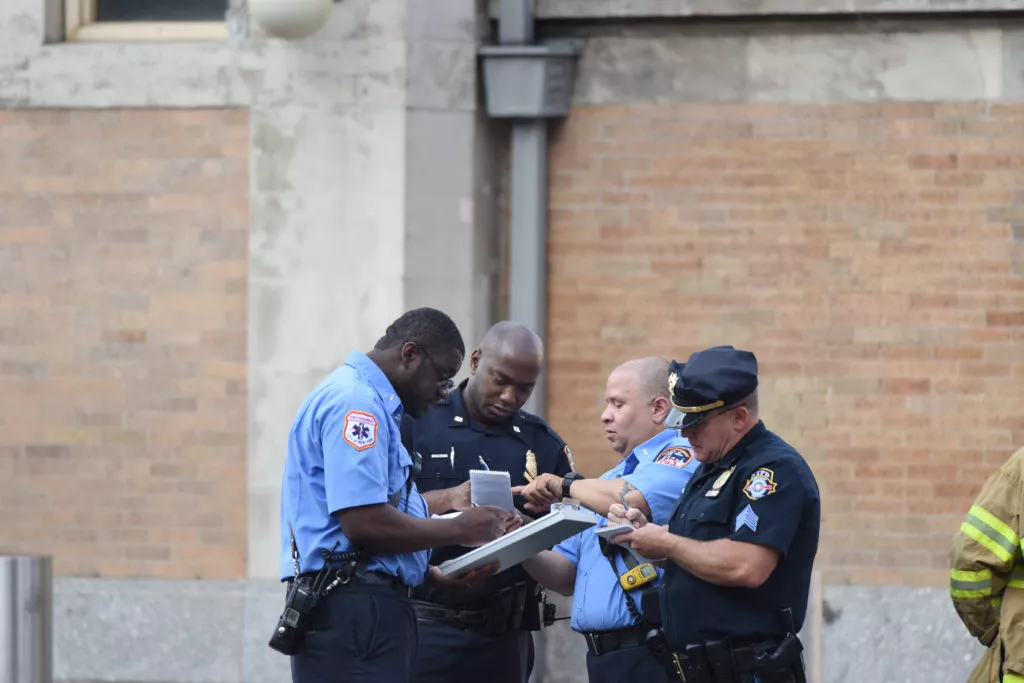While two-car accidents are the most common, this isn’t always the way things play out on Texas state roadways.
Three-way car accidents are also common, with these making it more difficult to determine fault.
In simple terms, a multi-vehicle accident increases the number of people involved, the damages, and the injuries (and possibly fatalities). And for that reason, liability issues are far more complex.
Who is responsible for the three-way accident?
This is where things get messy. Just the same as a two-car accident, it’s not always easy to determine who was at fault. By adding in a third vehicle, this becomes even more challenging.
Sometimes, it’s clear as to who was at fault, such as in the event that a speeding motorist crashes into two stationary vehicles at a traffic light.
Many three-way car accidents are the result of a chain-reaction. For example, one vehicle stops suddenly on a fast-moving interstate, which forces other drivers to brake just as hard.
If everyone is unable to stop in a timely manner, a three-car accident (or even more vehicles) can occur.
In most cases, three-way car accidents have more than one contributing factor. Here are some examples:
- Driving under the influence of alcohol while also speeding.
- Distracted driving, which impedes a driver’s ability to avoid a previous crash.
- Failure to take the steps necessary to prevent an accident (common with inexperienced teen drivers).
So, who is responsible for paying in a three-way accident?
This is the million-dollar question. You don’t believe you should be responsible for the accident, but you’re concerned that this could be the case.
Often, multiple parties help to decide who is responsible for the accident. This can include but is not necessarily limited to:
Example 1: Police officer
While a police officer can’t personally decide who should pay for damages, they are responsible for creating a police report. And depending on the details within the report, this document may be used to determine who was at fault. For example, if an officer arrests someone for driving while intoxicated, after causing an accident, this becomes part of the formal record, which plays into figuring out who pays.
Example 2: Insurance companies
Insurance companies: In Texas, motorists are required by law to carry a minimum of $30,000 of coverage for injuries per person, up to a total of $60,000 per accident, and $25,000 of coverage for property damage. Adding to this, the insurance company of the at-fault party is responsible for paying the claim. However, this doesn’t mean they’ll do so. And even if they agree, a low ball offer is likely (at least to start).
Last resort: Mediation and litigation
If you’re unable to reach a settlement with the insurance company, it’s time to consider both of these options:
Option 1: Mediation
Mediation gives all parties involved the opportunity to tell their side of the story. With the help of a mediator, the end goal is to find mutually acceptable common ground.
Note: The mediator does not have the legal authority to make final decisions. The mediator’s job is only to record what happens, keep the discussion on track, and maintain the peace.
If mediation fails, taking the claim to court (“litigation”) may be your last option.
Should you find yourself in this position – and most often before this – it’s a good idea to consult with a Houston car accident attorney.
Here are just a few of the things your injury attorney can do:
- Review the finer details of your case.
- Place a value on your claim, which helps them decide what to do next.
- Answer your questions clearly, which can help put your mind at ease.
And remember, even if your case is moving towards litigation, you still have the opportunity to settle. Oftentimes, an insurance company will wait until the last minute to make a better offer!
Option 2: Litigation
If the insurance company doesn’t come through with a better final offer, your case will go to court where a jury will decide who was responsible. The jury will also decide who will receive compensation, and the overall value of this compensation.
Note: The judge presiding over your case may decide to conduct a bench trial, where the judge is the only person who hears your case. There’s no jury involved. Instead, the judge makes a final ruling that determines who is responsible for paying, and how much.
You do your best to remain safe on the road, but you never know what could happen. If you’re involved in a three-way car accident in the state of Texas, contact the Houston personal injury attorneys at Johnson Garcia LLP to handle this complicated process for you.
With the guidance of our experienced and knowledgeable injury attorneys, you’ll be more confident in your ability to navigate this challenging process.



